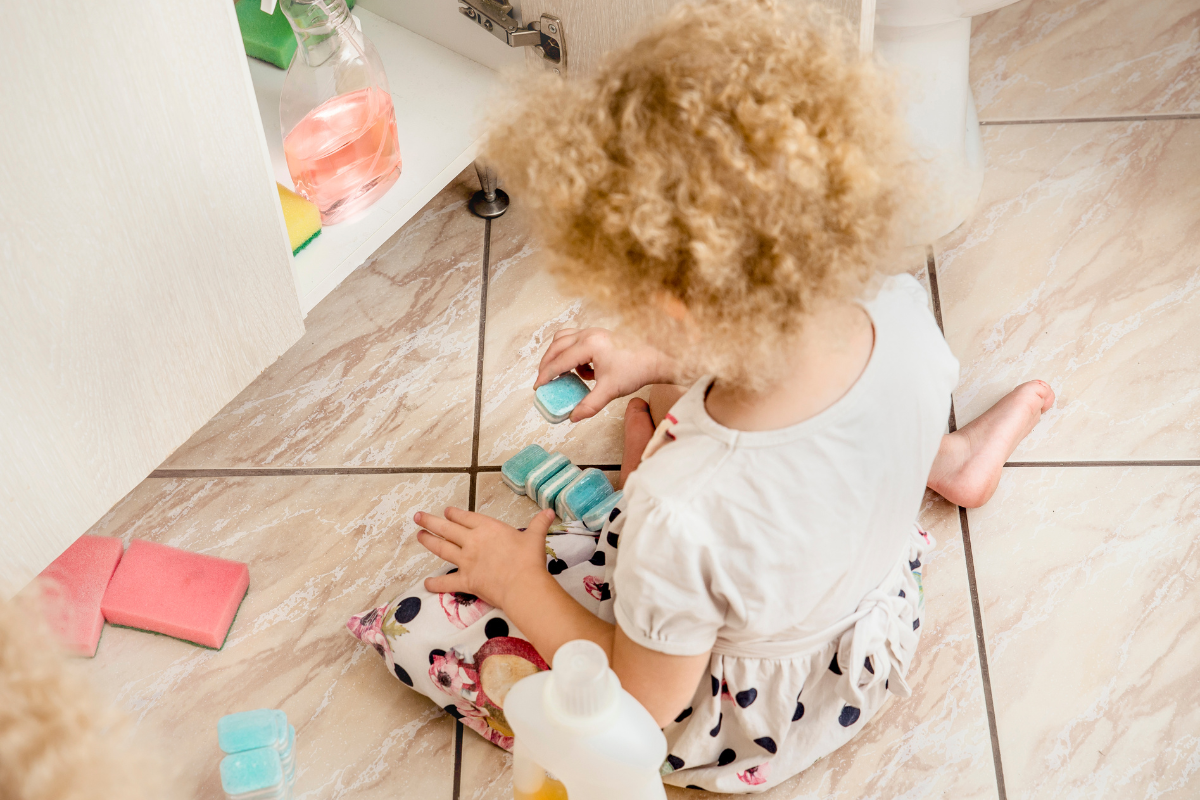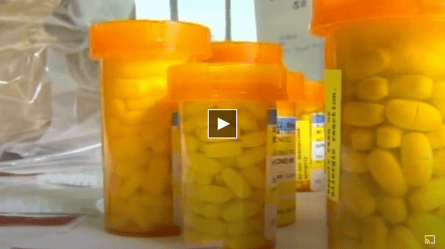According to the Centers for Disease Control and Prevention, approximately 60,000 children in the United States each year are seen in the emergency room after accidental medication poisonings (excluding recreational drug use). “Children less than 5 years old are twice as likely as older children to be taken to the emergency department for an adverse drug event, and one out of every 250 2-year-olds visits an emergency department for a medication poisoning annually.”
Children are naturally prone to exploring their surroundings. They may not understand the potential dangers posed by household medications and other substances or chemicals. There are several reasons children may ingest medicines and dangerous items, including:
- Curiosity — Children are curious and often inclined to touch, taste or play with anything they come across. Medicines, which can appear colorful and appealing, may be mistaken for candy or toys.
- Innocence — Children lack the knowledge to distinguish between medications and harmless items. They might not realize the difference between a pill and a piece of candy.
- Developmental stage — Young children haven’t fully developed their cognitive skills, meaning they may not understand the consequences of their actions. They won’t comprehend the potential harm medications can cause.
- Exploration — Children are known to explore bags, cabinets and containers. Even if parents think medications are out of reach, a determined child can find a way to access them.
- Limited self-control — Children often lack the self-control to resist putting things in their mouths. They might accidentally ingest medication while playing or experimenting.
“Accidental medication exposure is unfortunately common in young children, and they are much more susceptible to adverse reactions,” said Lyndsey van der Laan, M.D., a board-certified pediatrician and pediatric emergency medicine physician with Pediatrix® Emergency Medicine of Nevada and assistant medical director of the pediatric emergency department at Siena Hospital. “Even common medications, such as Tylenol, Benadryl and aspirin, can be extremely dangerous to children. Two 500 mg Tylenol tabs are appropriate for an adult but could cause severe liver damage to an infant. Or a family member’s diabetic medication could cause life-threatening low glucose levels in a toddler. Some medications can look like candy, which entices young children to try them. Some household chemicals, such as laundry detergent pods, are colorful and can look appetizing to the young eye.”
Safety Measures: An Ounce of Prevention for Parents and Caregivers
While parents, grandparents and caregivers strive to keep a close eye on children at all times, it’s not a realistic goal. Mom may step into the other room to change laundry while dad may be in the kitchen preparing a family meal, both peeking in on their child often to make sure everything is OK. However, it takes seconds for a child to put something in his or her mouth and go on playing without anyone noticing something had been swallowed.
To keep children safe from harmful substances, parents and caregivers should implement safety measures, including:
- Lock away medications — All prescription and over-the-counter medications, including vitamins and supplements, should be stored in a locked cabinet, out of children’s reach.
- Childproof containers — Ensure that medications are stored in child-resistant containers. Though because they are not entirely childproof, vigilance is still necessary.
- Educate and communicate — Teach children about the difference between medicine and candy. Explain the potential dangers and emphasize that only grown-ups should handle medicines.
- Read labels — Always read labels and follow dosage instructions carefully. Avoid taking medicine in front of children to prevent them from imitating the behavior.
- Dispose properly — Dispose of expired or unused medications properly to avoid accidental ingestion.
- Safe storage of bags — Keep purses, bags and backpacks that may contain medications out of reach. Children are known to explore these items.
- Emergency numbers — Store poison control and emergency numbers on the refrigerator and in your cell phone for quick access during emergencies. The Poison Control Centers helpline is 800-222-1222, and help is available 24/7/365.
- Supervision — Always supervise young children, especially around potentially harmful substances.
“The best way to keep children safe is to keep them away from these dangerous medications and chemicals,” explained Dr. van der Laan. “Even ‘childproof’ lids on medicines are not a 100% guarantee. Lock up medicines and chemicals. Take medications over a sink in case you drop a pill so it cannot be accidentally found later by little wandering hands. Do not store chemicals, such as bleach, in water bottles or unmarked containers that can be confused for other liquids.”
Medication- and Poison-Related Emergencies
Even though every measure has been taken to keep children safe from medicines and other poisons, accidents still happen. For example, say you are on a family vacation visiting a relative. There is a chance the same safety measures you have implemented at home have not been implemented in the relative’s home, especially those without children. Maybe you have house guests who have not secured their medications.
“Accidents happen, and we are not here to make families feel guilty if their child accidentally ingests a medicine or chemical,” said Dr. van der Vaan. “Always err on the side of caution and have your child evaluated. We are available to provide life-saving measures but also to provide peace of mind.”
In the event your child has ingested any form of medication or poisonous substance, it is natural to panic, but staying calm is crucial. Take a deep breath to think clearly and take immediate action, including:
- Assess the situation — Determine which medication was ingested, how much and when. Look for any signs of distress or unusual behavior in the child.
- Call for help — Contact the Poison Control helpline or emergency medical services immediately. They can provide specific guidance based on the type of medication ingested and the child’s age and weight.
- Do not induce vomiting — Unless directed by a medical professional or poison control, do not try to induce vomiting. Some medications can cause more harm if brought back up.
- Have information ready — When you call for help, be ready to provide information about the medication, dosage and the child’s age and weight.
- Observe the child — Keep a close eye on the child’s behavior and monitor for any changes. Symptoms can vary depending on the type of medication ingested.
- Do not give anything unless instructed — Do not give the child any other medications, food or liquids unless specifically instructed by a medical professional.
- Seek medical attention — Even if the child appears fine, it is essential to seek medical attention immediately. Some reactions to medication ingestion might not be apparent right away.
- Keep medication containers — If possible, keep the medication container handy for reference. It will help medical professionals understand what the child ingested.
“If a parent or a family member is concerned a child has ingested a medication or chemical, the first thing to do is assess how the child is doing,” explained Dr. van der Laan. “If they spilled chemicals on themselves, get them out of the soiled clothes and wash their skin. If they are awake and responsive, Poison Control should be called. It is an excellent resource and can help give guidance. However, if the child is unresponsive, having trouble breathing or is not acting right, call 911 and get to the emergency department immediately.”
Watch what Dr. van der Laan shares with KSNV television station in Las Vegas about the dangers common household drugs can pose for children and the importance of ensuring they are safely stored and secured.

